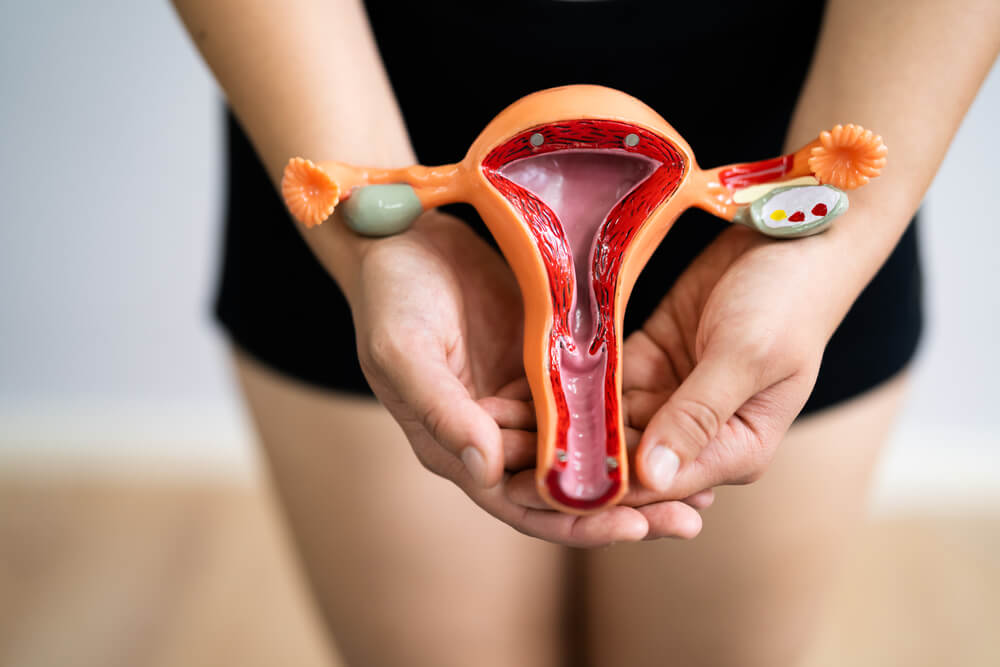Female bodies go through various changes throughout their lives, some of which can lead to health concerns. One such concern is endometrial hyperplasia. Though it may sound complicated, endometrial hyperplasia is a condition that affects the lining of the uterus, causing it to thicken. In this article, experts at Trogolo Obstetrics and Gynecology in Jacksonville will explain what endometrial hyperplasia is and delve into the causes, symptoms, and treatment options for the condition, providing you with valuable information to help you understand and manage this condition.
What Is Endometrial Hyperplasia?
Endometrial hyperplasia refers to the excessive growth of the endometrium, which is the lining of the uterus. Normally, the endometrium thickens and sheds during the menstrual cycle. However, in cases of endometrial hyperplasia, the lining becomes abnormally thickened. This condition can be categorized into different types, depending on the characteristics of the cells within the endometrium.

Types of Endometrial Hyperplasia
There are two main types of endometrial hyperplasia: simple hyperplasia and complex hyperplasia.
Simple Hyperplasia: In this type, the cells in the endometrium increase in number but maintain their normal structure. Simple hyperplasia is generally considered a precursor to endometrial cancer.
Complex Hyperplasia: In complex hyperplasia, not only do the cells multiply excessively, but they also undergo changes in their structure. This type carries a higher risk of progressing to endometrial cancer compared to simple hyperplasia.
How Common Is Endometrial Hyperplasia?
Endometrial hyperplasia is a relatively common condition among women of reproductive age. It is estimated that about 1 in every 10 women with abnormal uterine bleeding may also have endometrial thickening. The risk of developing endometrial hyperplasia increases with age, particularly after menopause.
What Are the Symptoms of Endometrial Hyperplasia?
Abnormal uterine bleeding is the most common symptom of endometrial hyperplasia. This can manifest as:
- Heavy menstrual periods: Experiencing unusually heavy or prolonged periods.
- Irregular menstrual bleeding: Having irregular periods or bleeding between periods.
- Postmenopausal bleeding: Experiencing vaginal bleeding after menopause, which is considered abnormal. Check out what the most common cause of postmenopausal bleeding is for more information on the matter.
It’s important to note that these symptoms can also indicate other reproductive health issues. Therefore, it’s essential to consult a healthcare professional for a proper diagnosis.
Does the Thickening of the Uterus Cause Pain?
In most cases, endometrial thickening does not cause pain. However, some women may experience mild discomfort or pelvic pain. If you are experiencing pain or severe discomfort, seeking medical advice to rule out other potential causes is crucial.
What Are the Most Common Causes of Endometrial Hyperplasia?
Endometrial hyperplasia is primarily caused by an imbalance in the levels of estrogen and progesterone, two key hormones involved in the menstrual cycle. When estrogen levels are high relative to progesterone, the endometrium may grow excessively, leading to hyperplasia. The following factors can contribute to hormonal imbalances:
- Hormonal disorders: Conditions such as polycystic ovary syndrome (PCOS) or obesity can disrupt the hormonal balance and increase the risk of thick uterine lining.
- Estrogen therapy: Prolonged or unopposed estrogen replacement therapy, without the use of progesterone, can elevate estrogen levels and increase the risk of endometrial hyperplasia.
- Anovulation: When ovulation does not occur regularly, it disrupts the balance between estrogen and progesterone, potentially leading to a thick uterine lining.
What Are the Risk Factors for Endometrial Hyperplasia?
Several factors can increase the risk of developing endometrial hyperplasia. These include:
- Age: The risk of endometrial hyperplasia increases with age, particularly after menopause.
- Obesity: Excess body weight can result in higher estrogen levels, increasing the risk of endometrial hyperplasia.
- Hormone replacement therapy: Long-term use of estrogen without progesterone in hormone replacement therapy can elevate the risk.
- Polycystic ovary syndrome (PCOS): PCOS is associated with hormonal imbalances, including elevated estrogen levels, which can contribute to a thick uterus lining.
- Diabetes: Uncontrolled diabetes can lead to hormonal imbalances and increase the risk of endometrial hyperplasia.
What Are the Complications of Endometrial Hyperplasia?
While endometrial hyperplasia itself is not cancerous, it can progress to endometrial cancer if left untreated. Therefore, it’s crucial to diagnose and manage the condition promptly to reduce the risk of complications.
How Is Endometrial Hyperplasia Diagnosed?
If you are experiencing abnormal uterine bleeding or other symptoms associated with endometrial hyperplasia, your healthcare provider may recommend the following diagnostic tests:
- Transvaginal ultrasound: This imaging test uses sound waves to create images of the uterus, allowing the doctor to evaluate the thickness of the endometrium.
- Endometrial biopsy: In this procedure, a small sample of the endometrial tissue is collected and examined under a microscope to determine if hyperplasia is present.
- Hysteroscopy: A thin, lighted tube is inserted through the cervix to visualize the inside of the uterus, allowing the doctor to identify any abnormalities.
What Is the Treatment for Endometrial Hyperplasia?
The treatment for a thick uterus lining depends on several factors, including the type of hyperplasia, your age, desire for future childbearing, and overall health. The following treatment options may be considered:
- Progestin therapy: Progestin, a synthetic form of progesterone, can help regulate the growth of the endometrium and reverse the thickening of the uterus in many cases.
- Surgical intervention: If the hyperplasia is complex or at a higher risk of progressing to cancer, your doctor may recommend a surgical procedure, such as a hysterectomy, to remove the uterus.
- Close monitoring: In some cases, if the hyperplasia is mild or you have specific health considerations, your doctor may choose to closely monitor the condition without immediate treatment.
How to Prevent Endometrial Hyperplasia?
While there is no foolproof way to prevent endometrial hyperplasia, adopting a healthy lifestyle can help reduce the risk. Here are some preventive measures you can take:
- Maintain a healthy weight: Aim for healthy body weight by incorporating regular physical activity and a balanced diet.
- Manage hormone therapy: If you are undergoing hormone replacement therapy, discuss the potential risks and benefits with your healthcare provider.
- Control chronic conditions: Proper management of chronic conditions, such as diabetes, can help maintain hormonal balance and reduce the risk of endometrial hyperplasia.

What Is the Outlook for People With Endometrial Hyperplasia?
The prognosis for endometrial hyperplasia is generally favorable, especially when diagnosed and treated early. With appropriate treatment and close monitoring, the majority of cases can be managed effectively, reducing the risk of complications.
The Bottom Line
Endometrial hyperplasia is a condition characterized by the excessive growth of the uterine lining. It is essential to be aware of the symptoms, causes, and risk factors associated with this condition. If you experience abnormal uterine bleeding or other concerning symptoms, seek medical attention promptly. Early diagnosis and treatment can greatly improve the outlook and reduce the risk of complications. Remember, maintaining a healthy lifestyle and regular check-ups are crucial for maintaining your reproductive health and overall well-being.
For professional gynecological care in Jacksonville, Florida, contact us at Trogolo Obstetrics and Gynecology and schedule your appointment.


